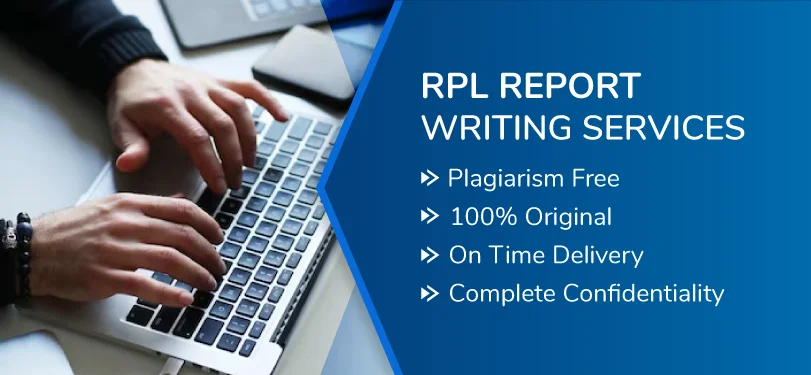
Benefits of RPL Report for ICT Applicants
The great Benefits of RPL Report for ICT Applicants are for those candidates who are willing to migrate to Australia. Lack of ICT credentials often makes it challenging for applicants to acquire a job within their field since the Australian immigration system has evolved to be more skilled-focused. RPL reports can assist with this issue by assessing the applicant’s current ICT knowledge and credentials in order to meet the requirements for a successful skilled migration application
The RPL report is a skills assessment that can be used as evidence to support an application for migration. It is issued by the Australian Computer Society (ACS), which provides applicants with an assessment experience that demonstrates their professional ICT level through a review of their qualifications and work experience. The RPL report assesses the applicant’s ICT qualifications and work experience against the required occupation in Australia, providing employers with valuable information about the individual’s skills, knowledge, and abilities.
This helps employers make informed decisions when considering potential employees for ICT positions. By using an ACS ICT skill assessment, employers can ensure that they are hiring individuals who are at least capable of performing at a professional level in their chosen occupation. The RPL Report also allows ICT professionals to demonstrate any additional learning or training they have undertaken since graduating from university or college.
Let us look through the Benefits of RPL Report for ICT Applicants and why it is required for the ICT Applicants.
Importance of RPL Report for ICT Applicants
This is an important way for ICT applicants to prove their necessary ICT skills and demonstrate that they meet the Australian requirements. The evaluation of the RPL report gives candidates a clear picture of their current competency level in relation to the necessary abilities required by employers. It is especially useful for those who may have insufficient ICT qualifications but have extensive professional experience in the field.
The RPL report requires ICT applicants to provide evidence of tertiary qualifications, skills, and professional experience that can be used as part of a comprehensive evaluation process. A successful assessment will show that they have all the relevant knowledge, skills, and experience needed to work in an ICT role and will help them stand out from other candidates.
A Recognition of Prior Learning (RPL) report is a type of skill assessment that evaluates the current ICT skills and experience of an individual. This document is generated to identify areas where learning has taken place, outside of formal education settings such as universities or colleges. It helps with understanding the value and relevance of the learning for a specific job role.
With this report, employers can gain insight into an applicant’s ICT credentials even if they don’t have any formal ICT degree or diploma. An RPL report can include a project report or any other type of document called “recognition,” which provides evidence for prior learning, as well as relevant skills assessment activities conducted by experts in the field to further evaluate their skills. Furthermore, it helps applicants apply for ACS recognition, which is another important step towards a successful career in information technology (IT).

FAQ – RPL Report for ICT Applicants
- What is the purpose of RPL assessment?
Ans : In order to improve employability, mobility, lifelong learning, social inclusion, and self-esteem, such individuals can apply the Recognition of Prior Learning (RPL) procedure to acquire a formal qualification that corresponds to their abilities and knowledge.
- What evidence is commonly used for RPL and why is it important ?
Ans : There are Three evidence that is commonly used for RPL are :
Direct evidence : It refers to when the RPL evaluator will monitor you in activity to see how your knowledge and ability are being utilized. So can do it in person or over video.
This could entail:
A. Your work is being examined by the assessor in person.
B. A direct evaluation of your knowledge and abilities
C. Submitting videos of you performing or accomplishing a task
In direct evidence : Any sort of evidence that the assessor can consider in determining your level of expertise is referred to as indirect evidence. There are various approaches you can offer indirect proof, and what will be relevant will depend on the details of the course.
It could consist of:
A. A finished product that acts as evidence of your work, such as paperwork, work-related writing, or field visits.
B. a collection of your work in a portfolio
C. Videos or images of your completed works
D. Written assignments or exam results
Supplementary evidence : Supplementary evidence is any other type of data that does not directly support your work but indeed illustrates your skills.
This may be:
- descriptions of jobs
- any relevant references
- testimonials from employers or clients or interviews with them
- a work journal or log
- evidence of any prior training and education that is relevant
Why acsrplwriting.com RPL Report for ICT Applicants ?
ACSRPLwriting.com provides plagiarism-free RPL report writing services for ACS RPL Skills Assessments. It prepares customized RPL reports at a very reasonable price for candidates around the world, making it easier for them to apply. In terms of deadlines and delivery, Acsrplwriting has been so good that we haven’t received any complaints so far. We offer various RPL packages for ACS RPL, including pricing, features, and delivery time.





